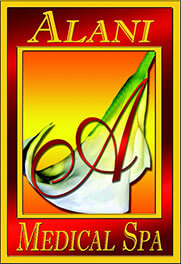Gas and Bloating
Introduction
Gas symptoms occur daily as part of your normal digestive process. Belching, burping, and passing gas (flatulence) eliminates gas from your digestive tract. Excess gas can cause discomfort, pain, and bloating.
Gas symptoms are produced by swallowed air and the breakdown of certain foods by bacteria in the digestive system. In some cases, gas and bloating can be symptoms of gastrointestinal (GI) disorders. Treatment depends on the cause of the gas symptoms. Treatments may include dietary changes, changing how you eat, and medications. Underlying medical conditions may require more specific treatments.
Anatomy
Causes
Air swallowing causes stomach gas. You naturally swallow some air when you eat and drink. However, smoking, chewing gum, wearing loose dentures, and eating or drinking too quickly may cause you to swallow too much air. Most of the extra air leaves the stomach when you burp or belch. A small portion of the extra air travels through the digestive system and is released as gas.
Gas and bloating may result if your body does not digest and absorb certain food components in your small intestine. Some people lack or have a shortage of enzymes that are necessary to digest carbohydrates. Carbohydrates include sugar, starch, and fiber found in many foods. The undigested carbohydrates travel to the large intestine where they are broken down by harmless bacteria. This process can result in gas and bloating.
The carbohydrates that produce gas and bloating in one person may not cause symptoms in another person. Sugars with the greatest potential to cause gas include raffinose, lactose, fructose, and sorbitol. Some foods contain more than one of these types of sugars. Beans contain a large amount of raffinose. Other foods with raffinose include cabbage, brussel sprouts, broccoli, other vegetables, and whole grains. Lactose is contained in milk and milk products, such as ice cream and cheese. It is also a component of processed foods including cereal and salad dressings. Tree fruits, berries, honey, onions, some vegetables, and wheat contain fructose. Fructose is used as a sweetener in soda pop and fruit drinks. Sorbitol is found in tree fruits. It is used as a sweetener in diet foods and sugar-free candies.
Some starchy foods produce gas when they are broken down in the stomach. Such foods include potatoes, corn, noodles, and wheat products. Additionally, foods containing soluble fiber do not break down until they reach the large intestine. Soluble fiber is found in oat bran, beans, peas, and most fruits.
Eating high-fat food products can cause bloating and discomfort, with lesser amounts of gas. Fatty foods can slow or delay stomach emptying. This can lead to the accumulation of gas, upper abdominal pressure, nausea or vomiting.
Chronic belching can be a symptom of certain medical conditions. Some upper GI disorders can cause an overproduction of stomach gas, which results in belching and burping. Peptic ulcer disease, gastroesophageal reflux disease (GERD), hiatal hernia, and gastroparesis (slow stomach emptying) are some upper GI disorders that can cause belching.
Gas and bloating can be the symptom of certain lower GI disorders. Some lower GI disorders can cause inflammation or increased sensitivity in the colon, making gas especially uncomfortable. Irritable bowel syndrome (IBS), Inflammatory Bowel Disease, colon cancer, chronic constipation, and celiac sprue are some lower GI conditions that can result in gas and bloating.
Symptoms
Diagnosis
Treatment
Prevention
Am I at Risk
Anyone can experience gas, bloating, and belching. It commonly occurs to everyone, everyday. However, for some people gas, bloating, and belching may happen quite frequently and be bothersome or uncomfortable.
Factors associated with gas, bloating, and belching:
_____ Swallowing air can cause stomach pain, burping, and belching. Smoking, chewing gum, wearing loose dentures, and eating or drinking too quickly may cause you to swallow too much air.
_____ If you lack digestive enzymes in your small intestine, you may be unable to digest certain types of carbohydrates. Food intolerance can cause gas and bloating.
_____ Some starchy foods, high-fiber foods, and high-fat foods can cause gas in certain people.
_____ Belching and burping can be symptoms of some upper GI disorders.
_____ Bloating and gas can be symptoms of some lower GI disorders.
Complications

Copyright © - iHealthSpot Interactive - www.iHealthSpot.com
This information is intended for educational and informational purposes only. It should not be used in place of an individual consultation or examination or replace the advice of your health care professional and should not be relied upon to determine diagnosis or course of treatment.
The iHealthSpot patient education library was written collaboratively by the iHealthSpot editorial team which includes Senior Medical Authors Dr. Mary Car-Blanchard, OTD/OTR/L and Valerie K. Clark, and the following editorial advisors: Steve Meadows, MD, Ernie F. Soto, DDS, Ronald J. Glatzer, MD, Jonathan Rosenberg, MD, Christopher M. Nolte, MD, David Applebaum, MD, Jonathan M. Tarrash, MD, and Paula Soto, RN/BSN. This content complies with the HONcode standard for trustworthy health information. The library commenced development on September 1, 2005 with the latest update/addition on February 16, 2022. For information on iHealthSpot’s other services including medical website design, visit www.iHealthSpot.com.


